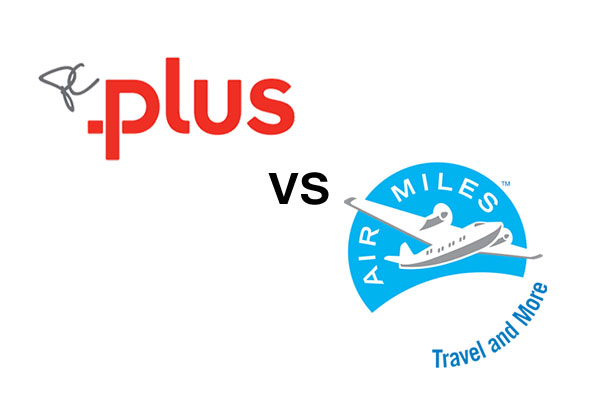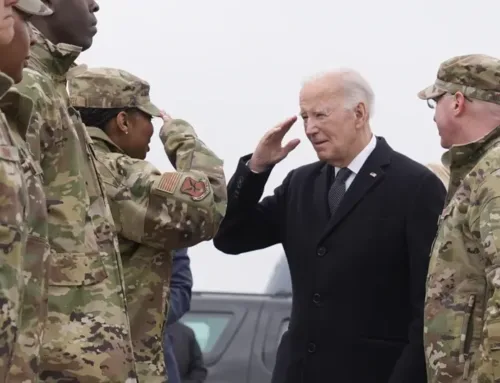Yes, Canadians love their loyalty programs, to the point where big retail marketers likely feel that having one is a cost-of-entry marketing investment. Let’s look at two very different approaches to loyalty marketing in the grocery store segment: Loblaws’ PC Plus and Metro’s Air Miles.
As a consumer, PC Plus has always baffled me. It feels like I’m asked to do a lot for no benefit:
- I need to dig my tiny, easily snagged-up membership card out of my wallet, often spilling out cash, receipts and other potentially embarrassing items (amusing to no one, except for the latter) at the most unexpected moment during checkout.
- I need to open and read weekly PC Plus emails and ‘load my offers’.
Admittedly, this is ‘a lot’ of effort in Wealthy Industrialised Nation consumer terms only, but I feel this way because in more than two years and thousands of dollars of shopping loyalty, I’ve never managed to redeem a single PC Plus reward. Now I know that’s because I’ve not really been doing my part properly.
PC Plus was launched by Loblaws (as the President’s Choice brand owner) with much marketing fanfare in 2013. It was actually the mobile-centric, digital upgrade to PC Points, a very traditional loyalty program started in 1998. It’s also a Big Data geek’s wet dream–it’s the most advanced loyalty program in Canada because of its ability to provide offers and rewards customised to the individual shopper. Here are the basic mechanics:
- You create an account for all Loblaws-related banner stores by providing your email address, and hopefully, your mobile phone number.
- By providing your PC Plus card at the right checkout moment, the program captures your complete transaction history.
- PC Plus emails you ‘offers’ – discounts on items you regularly buy, related items and mysteriously unrelated items. You must accept (load by clicking a button in the email) these offers to get the ability to be rewarded when you buy the specific products at a Loblaws banner store in a 7-10 day time frame.
- At defined point level intervals, you can redeem your points in the form of a discount on your in-store purchase (as stated earlier, I can’t personally confirm this).
Air Miles is Canada’s biggest omnibus loyalty program, launched in 1992—before the world wide web and before most Millennials were born. If you can imagine that. Here are the basic mechanics for its ‘sponsor’ grocery stores (Metro, Sobey’s & Safeway):
- You register and provide your Air Miles card at checkout, just like PC Plus.
- You earn reward points based on your total purchase.
- At defined point level intervals, you can redeem your points in-store, in the form of a discount on your purchase, and out-of-store, on a host of other rewards, including air travel, the program’s original reward.
I’ve redeemed Air Miles points in Metro multiple times. It’s delightful, but it’s partly because I’m earning Air Miles points at other non-grocery retailers.
Which is better for the Consumer?
We need to do some arithmetic to determine this. With Air Miles at Metro, you earn $1 for every $20 purchased, for a nominal discount of 5.0%. However, the strict $20 purchase level increments (whereby $39.99 earns you 1 point, $40.00 earns you 2 points), means the average Metro shopper earns a 2.9% discount on their entire grocery purchase. [1]
With PC Plus, you can earn an average discount on your ‘personal basket’ of 8-10 specific products of 20%. [1] However, the earned discount on products you regularly buy (and PC-brand products you don’t regularly buy) are much lower at 12%-13%. Discounts on third-party brand products are in the range of 20% to 30%. But your total personal basket would likely represent 40% to 45% of your average total grocery purchase, so the earned discount comparable to Air Miles is more like 8%-9%. And more like 6% on the items you regularly buy.
So PC Plus wins on potential earned discount percentage to the consumer. But a key factor consumers would not normally consider is that Loblaws does not (usually) discount the PC brand items in your personal basket and their overall pricing structure is already higher than Metro’s to begin with. This is very difficult to quantify but could easily negate PC Plus’s percentage discount advantage in absolute dollars over Air Miles at Metro.
“[PC Plus will] earn hundreds of millions of dollars in incremental revenue”
This was presumably said by Brian McDonough, an IDC Corp research manager who spoke with a number of Loblaws employees in the year following the 2013 launch of PC Plus. [2]
Very impressive, until you realise that $100M is just .2% of current annual revenue for Loblaws-banner stores. PC Plus likely helps EDITDA more than revenue and that qualifies as very impressive. So is Loblaw’s ability to follow a Big Data dream through to successful implementation.
Which is better for the Marketer?
We need to go back to objectives to answer this. These are loyalty programs intended to make regular shoppers more loyal to their respective stores.
PC Plus does motivate regular shoppers to continue to buy the products they already like to buy at Loblaws banner stores, without higher-level discounting traditionally used in-store-level and in flyers. Despite what Loblaws says publically (see right sidebar), I believe it stabilises the current customer base more than it increases purchases from regular customers—still a very important achievement. It also serves as a framework, on top of which, much more Big Data marketing can follow. Both these factors justify the significant time and dollar investment Loblaws has made and continues to make in the program.
Air Miles does not bring the same loyalty benefit to Metro. Sobeys and Safeway have the identical program, and in markets like Toronto, there is territorial overlap between these competing sponsors. It’s an easy solution for a marketer who believes they need a loyalty program just to be in the game.
Summary, finally
PC Plus offers the best potential earned discount percentage, if the Loblaws customer is willing to do all the ‘work’ and be, uhh, obedient. But in absolute terms, shoppers using a loyalty program will save more money at Metro. I suspect Millennials are willing to do the work required of PC Plus, for the mystical benefit of personalisation. PC Plus is clearly a better promotional strategy for Loblaws than Air Miles is for Metro, in the context of all respective marketing strategies.
As my own consumer experience indicates, PC Plus’ complexity requires more participation at two levels critical for success: the grocery store staff and the customer. If Loblaws can improve that, the result can only be upside.
- Calculations and assumptions available upon request.
- Brian Jackson, “Loblaws’ digital PC Plus loyalty program expected to add ‘hundreds of millions’ in revenue”, itbusiness.ca, August 12, 2014.
- ®/TM PC, PC Plus, President’s Choice, PC Financial, and President’s Choice Financial are trademarks of Loblaws Inc. Trademarks used under licence.
©2016 (PC Plus). - ©1999-2016 LoyaltyOne, Co. ®TM Trademarks of AIR MILES International Trading B.V. Used under license by LoyaltyOne, Co. Sponsor, Supplier and Retailer trademarks are owned by the respective Sponsor, Supplier or Retailer or authorized for their use in Canada.
- sidebar image from “Austin Powers: International Man of Mystery, 1997.







CORRECTION: Sobeys owns Safeway, so the grocery sector ‘brand overlap’ is really between Sobeys and Metro, and geographically, in the Ontario and Quebec markets.
Not that I would ever expect anyone from Loblaws to have read this (now ancient) post, but I did say a quiet ‘amen’ when I saw this:
headline: Loblaw enlists Eagle Eye to enhance PC Optimum
sudheading: The grocer contracts the tech company to make its loyalty offering more convenient for customers.
article link: http://strategyonline.ca/2018/02/14/loblaw-aims-for-greater-personalization-with-pc-optimum/